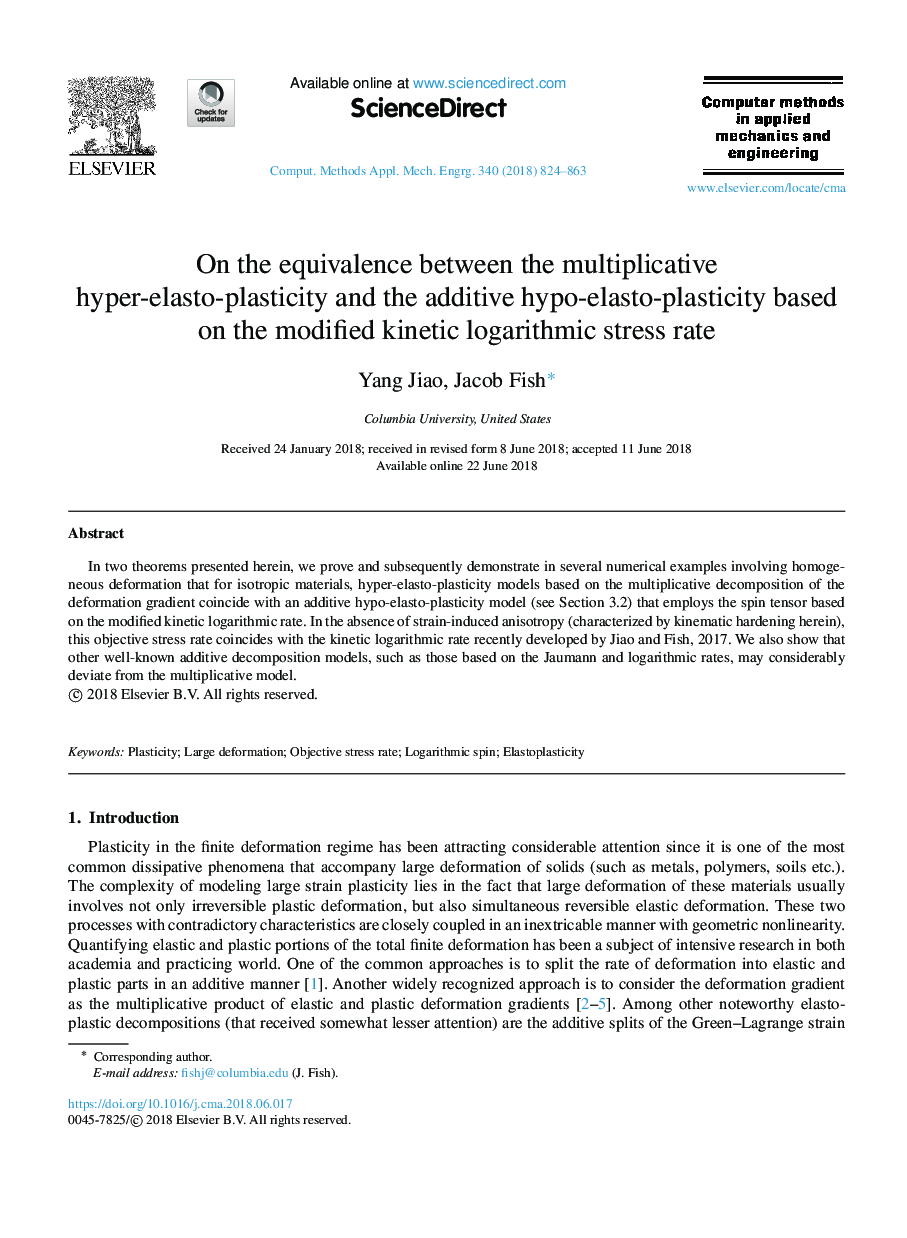| Article ID | Journal | Published Year | Pages | File Type |
|---|---|---|---|---|
| 6915331 | Computer Methods in Applied Mechanics and Engineering | 2018 | 40 Pages |
Abstract
In two theorems presented herein, we prove and subsequently demonstrate in several numerical examples involving homogeneous deformation that for isotropic materials, hyper-elasto-plasticity models based on the multiplicative decomposition of the deformation gradient coincide with an additive hypo-elasto-plasticity model (see Section 3.2) that employs the spin tensor based on the modified kinetic logarithmic rate. In the absence of strain-induced anisotropy (characterized by kinematic hardening herein), this objective stress rate coincides with the kinetic logarithmic rate recently developed by Jiao and Fish, 2017. We also show that other well-known additive decomposition models, such as those based on the Jaumann and logarithmic rates, may considerably deviate from the multiplicative model.
Related Topics
Physical Sciences and Engineering
Computer Science
Computer Science Applications
Authors
Yang Jiao, Jacob Fish,
